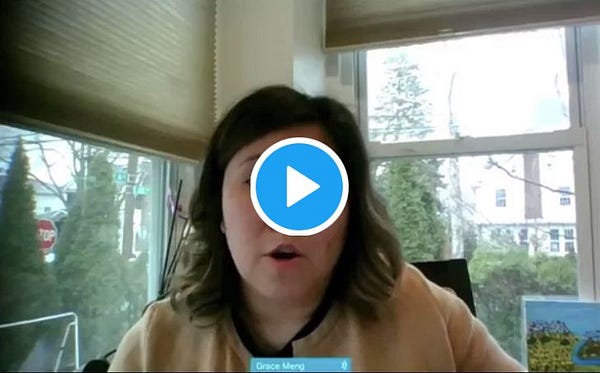3/18: Deni gets into those kinds of things
Meyers Leonard opens his mouth, so now we all have to.
You kike bitch.
Veteran NBA player Meyers Leonard said these words on a Twitch stream last week. He was playing Call Of Duty and shooting at someone when he said it. Kike is a slur that means Jew, and oddly, Leonard probably got off the hook with a one-week “away from team” suspension and $50,000 fine because he used the slur instead of the word it replaces. You Jew bitch would have meant the exact same thing, and been harder to dismiss as a word whose meaning was unknown. That was Leonard’s excuse: I didn’t know what the word meant at the time. Few (if anyone) bought that — does anyone use a slur without knowing what it means? — but the alibi was good enough for the ADL. We never found out how that word entered his vocabulary in the first place.
The clearest condemnation came from Leonard’s head coach, who did not attempt to defend his player’s character. “There’s still so much work to be done,” he said. Still, the franchise declined to release Leonard, and in fact made use of Leonard by trading him to Oklahoma City a week later. A toxic asset is still an asset.
You’re reading DENI DIARY, a weekly dispatch from Deni Avdija’s rookie season by Louis Keene. (Follow me on Twitter!)
I wrote to the Wizards public relations department not long after the slur made the rounds last Monday:
The Wizards employ a Jewish player, and maintain a prominent presence in Israel by launching the league's first Hebrew team site and Hebrew social accounts. Just last week was the team's Jewish heritage night.
Does the Wizards organization have a comment on the incident?
They did not reply to me or publicly issue a statement supporting Deni Avdija. When I asked Wizards head coach Scott Brooks and Avdija’s teammate, Robin Lopez, about it at practice the same day, they deplored the use of the slur. “That’s unacceptable,” Brooks said. Said Lopez: “That's an ugly word, there's no getting around it.” But both said they didn’t feel the need to reach out to Deni, let alone close ranks around him. Lopez said, “I think he's aware that we stand with him, we stand with anybody of the Jewish faith.”

Strangely, Deni Avdija’s routine media availability came and went without any of the English-language reporters asking him about the incident. I joined the session late — I was interviewing a Yeshiva University basketball player about their 36-game win streak and it ran long — and was forced to deploy some rusty Hebrew to beg one more question, and I Hebrew-Englished it out in humiliatingly American fashion. Anyway, he got what I was asking.
His response:
There are countless reasons Deni doesn’t want to get into those kinds of things: he’s a rookie still trying to figure shit out; he doesn’t want to start beef with a player he doesn’t care about and he is already better than; he doesn’t want to refuel the Meyers Leonard news cycle; the word doesn’t offend him; talking about anything besides sports isn’t expected of Israeli professional athletes; he doesn’t want to be consulted any time antisemitism…or Israel…is in the news.
I do think it’s a bit embarrassing that none of the D.C. beat reporters bothered to ask. Were they afraid to “get controversial”? They certainly happy to tweet and blog about it once I asked. Clearly they thought it was newsworthy. But I guess that’s the state of NBA media today and why I mostly don’t cover it anymore. Have you seen anyone who covers the team write about how bad Westbrook has been all year?
One of the things that could happen if someone did ask prior to the final question of his availability, is that another person could have asked a follow up question, enabling us to learn more about who he is. Deni’s dad is Muslim, and his mother is Jewish. What was his household like growing up? What kind of school did he go to? Does he identify as Muslim, too? We’ll have to wait to find out.
On Tuesday, a man shot up a pair of massage parlors in Atlanta, killing eight people. Six of the dead were Asian-American women. There was a moment in public discourse about whether the act of mass murder was “racially motivated,” an argument whose only consequence is making injured people feel worse. It’s not as if the deaths of these eight people confirmed that racism against Asian-Americans has gotten out of control. It’s not like it confirmed that the racism against Asian-Americans in this country has turned violent. No. Nothing has changed. It has only become harder to ignore. The fight to keep Tuesday’s massacre off of a growing list — helped by a police officer who chalked up the killer’s handiwork to having a bad day, and who had shared Sinophobic memes on his Facebook page because of course he did — was a desperate plea to let us ignore it.
As if none of these things are really happening. As if they are random, and our brains are just creating patterns to make sense of them because that’s what the human brain does. As if ethnic or racial slurs just randomly pop into a person’s head when they want to harmlessly cuss someone out. As if our friends in those minority communities are just naturally aware that we stand with them. As if by dismissing racism as a motivating factor, we no longer need to redouble our fight against it. As if ignoring the source of the cruelty makes the cruelty simply go away.







